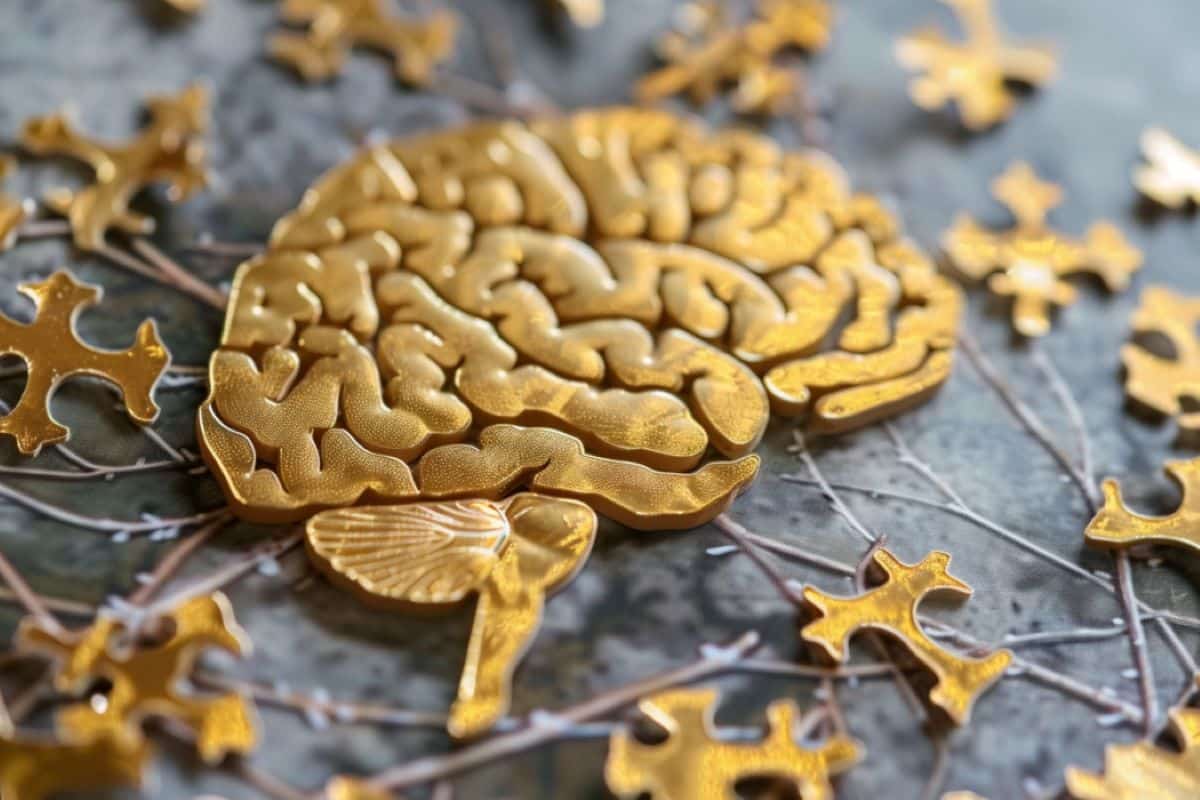Summary: A new study reveals that a poor quality diet may lead to brain changes associated with depression and anxiety. Researchers found that unhealthy eating habits reduce grey matter and alter neurotransmitter levels in the brain.
These changes correlate with rumination, a symptom of mental health conditions. The study underscores the importance of a healthy diet for mental well-being.
Key Facts:
- Poor diet linked to reduced grey matter and imbalanced neurotransmitters.
- Changes in brain chemistry correlate with symptoms of depression and anxiety.
- Study highlights the circular relationship between diet, brain health, and mental well-being.
Source: University of Reading
Eating a poor quality diet might lead to brain changes that are associated with depression and anxiety. This is according to a first-of-its-kind study into the brain chemistry and structure, and diet quality of 30 volunteers.
Brain scans show changes in neurotransmitters and grey matter volume in people who have a poor diet, versus those who adhere to a Mediterranean style diet, which is considered very healthy.
The researchers also found that these changes are associated with rumination, a part of the diagnostic criteria for conditions affecting mental health, such as depression and anxiety.
This research was carried out by the University of Reading, Roehampton University, FrieslandCampina (Netherlands), and Kings College London, and is published in Nutritional Neuroscience.
When someone eats a poor quality diet, there is reduced gamma aminobutyric acid (GABA) and elevated glutamate – both neurotransmitters, along with reduced grey matter volume – in the frontal area of their brain. This could explain the association between what we eat, and how we feel.
Dr Piril Hepsomali, University of Reading, said: “We can eat ourselves well! Ultimately, we see that people who have an unhealthy diet – high in sugar and saturated fat – have imbalanced excitatory and inhibitory neurotransmission, as well as reduced volume of grey matter in the frontal part of the brain.
“This part of the brain is involved in mental health issues such as depression and anxiety.”
The exact reason that diet affects the brain in this way is still under investigation. It’s possible that obesity and dietary patterns that are high in saturated fats cause changes in glutamate and GABA metabolism and neurotransmission, as has been shown in animal studies.
Distinct alterations of the gut microbiome, due to dietary patterns that are high in saturated fats, is thought to have an impact on cell machinery that drives both GABA and glutamate production.
A high saturated fat, high sugar, diet has also been shown to reduce the number of parvalbumin interneurons, which perform the role of delivering GABA to where it is needed.
Unhealthy diets also have an impact on glucose, making blood glucose and insulin higher. This increases glutamate in the brain and plasma, thus reducing GABA production and release.
Having a diet high in fat and cholesterol can cause changes in cell membranes that alter the release of neurotransmitters, too.
These changes in brain chemistry might lead to changes in the brain grey matter volume, as observed in this study.
Dr Hepsomali continued: “I would like to note that GABA and glutamate are intimately involved in appetite and food intake, too. Reduced GABA and/or increased glutamate might also be a driving factor in making unhealthy food choices.
“So, there may be a circular relationship between eating well, having a healthier brain and better mental wellbeing, and making better food choices to eat well.”
About this diet and depression research news
Author: Nancy Mendoza
Source: University of Reading
Contact: Nancy Mendoza – University of Reading
Image: The image is credited to Neuroscience News
Original Research: Open access.
“Adherence to unhealthy diets is associated with altered frontal gamma-aminobutyric acid and glutamate concentrations and grey matter volume: preliminary findings” by Piril Hepsomali et al. Nutritional Neuroscience
Abstract
Adherence to unhealthy diets is associated with altered frontal gamma-aminobutyric acid and glutamate concentrations and grey matter volume: preliminary findings
Objectives
Common mental disorders (CMD) are associated with impaired frontal excitatory/inhibitory (E/I) balance and reduced grey matter volume (GMV). Larger GMV (in the areas that are implicated in CMD-pathology) and improved CMD-symptomatology have been observed in individuals who adhere to high quality diets.
Moreover, preclinical studies have shown altered neurometabolites (primarily gamma-aminobutyric acid: GABA and glutamate: GLU) in relation to diet quality. However, neurochemical correlates of diet quality and how these neurobiological changes are associated with CMD and with its transdiagnostic factor, rumination, is unknown in humans.
Therefore, in this study, we examined the associations between diet quality and frontal cortex neuro-chemistry and structure, as well as CMD and rumination in humans.
Methods
Thirty adults were classified into high and low diet quality groups and underwent 1H-MRS to measure medial prefrontal cortex (mPFC) metabolite concentrations and volumetric imaging to measure GMV.
Results
Low (vs High) diet quality group had reduced mPFC-GABA and elevated mPFC-GLU concentrations, as well as reduced right precentral gyrus (rPCG) GMV. However, CMD and rumination were not associated with diet quality.
Notably, we observed a significant negative correlation between rumination and rPCG-GMV and a marginally significant association between rumination and mPFC-GLU concentrations. There was also a marginally significant association between mPFC-GLU concentrations and rPCG-GMV.
Discussion
Adhering to unhealthy dietary patterns may be associated with compromised E/I balance, and this could affect GMV, and subsequently, rumination.

Rachel Carter is a health and wellness expert dedicated to helping readers lead healthier lives. With a background in nutrition, she offers evidence-based advice on fitness, nutrition, and mental well-being.






